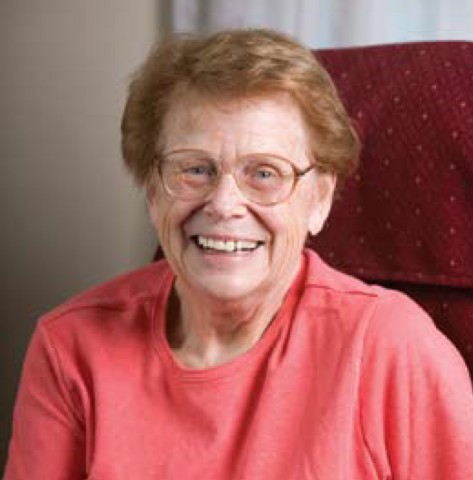
Recognizing that people change throughout their lives, Martha Gizynski covered human development from cradle to grave in her psychology classes at the U-M School of Social Work. “The idea that development ends when someone turns 18 is simply not adequate preparation for social work students who will work with the whole age continuum,” she comments. “They need to know that people continue to change normally between 35, 65, and 95.”
After obtaining an undergraduate degree in anthropology, Gizynski worked in sociology but preferred contact with individuals. And bland statistics bothered her. “I hated to hear that 60% thought a certain way. I wanted to know what individuals thought.”
Professor Emerita Rosemary Sarri, who was director of the Joint Doctoral Program in Social Work and Social Science at the time, persuaded Gizynski to leave sociology and go into social work. “Some professors said I was too old,” says Gizynski, who by this time was middle-aged with children. “Rosemary thought I could conquer the world.”
Gizynski earned her MSW in 1967 and began lecturing at the School while working on her PhD in social work and psychology. This led to an assistant professor position, which she held for five years before becoming associate professor.
As clinical professor and researcher, Gizynski focused on ego psychology, a theory of personality that emphasizes the strengths of the individual and relates to human development. “If people survive to age 16 or 17, they have something going for them,” she explains. Examples of ego strengths are cognition, planning, organizing, the ability to relate to someone, and the ability to acknowledge needing someone. “Focusing on people’s strengths facilitates their growth and your work with them. It’s very apt for social work.”
Her other research, most of which relates to human development across the life span, includes adolescents, maternal depression, and coping mechanisms of the elderly.
Working as supervisor in the Psychological Clinic of the U-M Institute of Human Adjustment from 1969 to 1981 helped Gizynski make whatever she taught relevant to her students who were working “in the trenches.”
Professor Emeritus Phil Fellin, who was dean during Gizynski’s tenure, recognizes this quality. “Martha was a superb teacher. She had an unusually high skill for incorporating knowledge from her doctoral studies, her ongoing research, and her clinical practice into the teaching of interpersonal practice and theory. At the same time, Martha made major contributions to the School’s governance and curriculum through her membership in numerous MSW and doctoral committees.”
Based on evaluations by students and colleagues, Gizynski ranked first among the School’s assistant professors in the excellence of her classroom teaching. “Of all the things I’ve ever done,” she admits, “classroom teaching was my favorite. Every once in a while someone will come up to me and tell me that they were in my class and learned a lot. I guess that’s the biggest thanks.”
Gizynski believes that her greatest contribution at the School lay in teaching students how to think about human behavior and development. “I couldn’t tell my students everything. I had to give them a new way to think and evaluate. Students need a systemic way of incorporating everything they’re going to learn throughout life.”
After retiring to associate professor emerita in 1987, Gizynski continued to supervise social workers and psychologists in private practice. She also began working in medical social work by volunteering for Foote Hospital in Jackson, Michigan. She remains in applied medical social work as she cares for her husband Wally, a retired obstetrician and gynecologist who has been ill since 2000.
She also finds time for eclectic reading, mostly in history, which has been a fresh change from reading professional journals.
Both new interests appropriately reflect her research. “In thinking about aging,” she says, “it is important to consider that older people can take up brand new interests and become not only passionate but good at them.”
—Tanya C. Hart Emley is editor of Ongoing.